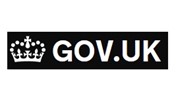Check you’re eligible (opens link in new window) before you apply.
You can apply for Access to Work online (opens link in new window) or by phone.
You’ll need to provide:
- your workplace address and postcode
- the name of a workplace contact who can authorise your Access to Work payments
- your workplace contact’s email address or work phone number
- your unique tax reference number (if you’re self-employed)
You’ll also need to explain:
- how your condition affects you at work or getting to work
- what help you’re already getting
- what else could help you
It will help your application if you’ve spoken to your employer about reasonable adjustments (opens link in new window) before you apply for Access to Work.
You can apply by calling the Access to Work helpline. Make sure you have all the necessary details with you when you call.
Access to Work helpline
Telephone: 0800 121 7479
Textphone: 0800 121 7579
Relay UK (opens link in new window) (if you cannot hear or speak on the phone): 18001 then 0800 121 7479
Monday to Friday, 9am to 5pm
After you have applied
Once you’ve applied, an Access to Work adviser will contact you to discuss what help you could get.
An adviser may also contact your employer to discuss how Access to Work can support you. They will not contact your employer until they’ve agreed this with you first.
An assessor may visit your workplace to assess your needs.
You may get an offer of support, which could include a grant. If it does, you’ll be told how much you’ll get and for how long.


